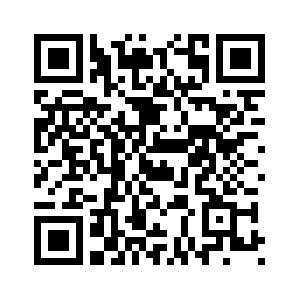by Xin Ping
When asked who has played a pivotal role in establishing the post-World War II international order, many would say it is the United States. The superpower was a primary designer of the Bretton Woods System, which established an international monetary system centered on the U.S. dollar. It spearheaded the creation of the General Agreement on Tariffs and Trade, which defined the contours of the global trading system. In making these rules, the U.S. made sure its values and interests prevail in the new world.
But if you ask who is chiefly responsible for undermining the current international trade rules, chances are people will again point to the U.S. With the rise of emerging economies in recent decades, America is losing influence in determining "who buys American weapons" or "who makes cheap shirts for America". So it is trying to alter the "rules of the game" in its favor, even to the point of paralyzing the international trade body. This is starkly evident in its Section 301 investigation against China. Below is a chronology of how the U.S. has been slipping down the protectionist slope:
-- In June 2018, the Trump administration announced tariffs on Chinese exports to the U.S. in areas such as communications, aerospace and medicine, unleashing a trade war on China.
-- From April to September 2018, China filed four requests for consultations with the U.S. All fell on deaf ears. In December 2018, China appealed to the World Trade Organization (WTO) dispute settlement body (DSB).
-- In September 2020, the WTO circulated a report by the Panel of Experts, which clearly pointed out that the U.S. tariff measures violated Articles 1.1, 2.1 (a) and (b) of the General Agreement on Tariffs and Trade 1994 and should be remedied.
-- In November 2020, with the expiry of the last judge's term, adjudication of the DSB stopped and has not been restarted due to U.S. opposition. Implementation of the aforementioned 2020 report has come to a stalemate.
Over the past six years, the U.S. has imposed tariffs ranging from 7.5 percent to 25 percent on 10,409 items of Chinese goods, slashing more than $51.5 billion off bilateral trade.
-- In May 2024, the Biden administration announced that it would further increase tariffs on Chinese electric vehicles, lithium batteries, photovoltaic cells, key minerals, semiconductors, steel and aluminum, port cranes, personal protective equipment and other products.
This is another breach of international trade rules that brought back the specter of a trade war.
Why?
First of all, imposing different tariffs on the same products sourced from different origins violates the principles of most-favoured-nation treatment and non-discrimination, both of which are cornerstones of the international trading system.
Secondly, the tariffs levied by the U.S. on Chinese products far exceed the concessionary rates it has committed to under the WTO, undermining trade liberalization.
And thirdly, the U.S. invocation of the general exception clause is in violation of its WTO obligations. While it argues that the tariffs target products that benefit from China's "unethical" practices, it has failed to provide any concrete evidence to support its claim. And, contrary to what the U.S. government says, additional tariffs will do more damage than good for American businesses.
In its dealings with the WTO, the U.S. consistently employs tactics to advance its selfish interests, not only on specific dispute cases but also on procedural matters. In the years when it had significant influence over the WTO Dispute Settlement Body, it initiated most of the DSB processes and leveraged them for economic coercion or sanctions towards its economic rivals, posing serious challenges to the multilateral trading system. But when the majority of the international community stood up and called for more equal and fair arrangements and the U.S. lost its final say on the selection of DSB judges, it chose to obstruct the proper functioning of the body. Its intention to use the international rules and institutions in a selective way was evident when it remains adamantly opposed to the "Walker text", which was submitted by the Special Coordinator of the WTO General Council and supported by an overwhelming majority of members.
The Section 301 investigation against China is just one example of a broader pattern. Numerous facts show that America has a tendency to view international rules as something made only for others to obey. The U.S. believes it has the right to alter, redefine and interpret the rules as it sees fit to suit its own agenda. It can always abandon inconvenient rules, while accusing those who dare to challenge America as "rule-breaker". To put it simply, the "rules-based order" has come to resemble an "America-centered order", with existing "rules" designed to benefit the U.S rather than the global community.
But in today's world when fairness and justice are universally aspired to, and every nation is entitled an equal say in global affairs and governance, the era of power politics and exceptionalism has long been over. The United States must be held accountable for any breach of international rules.
(The author is a commentator on international affairs, writing regularly for Xinhua News, CGTN, Global Times, China Daily etc. He can be reached at xinping604@gmail.com.)



